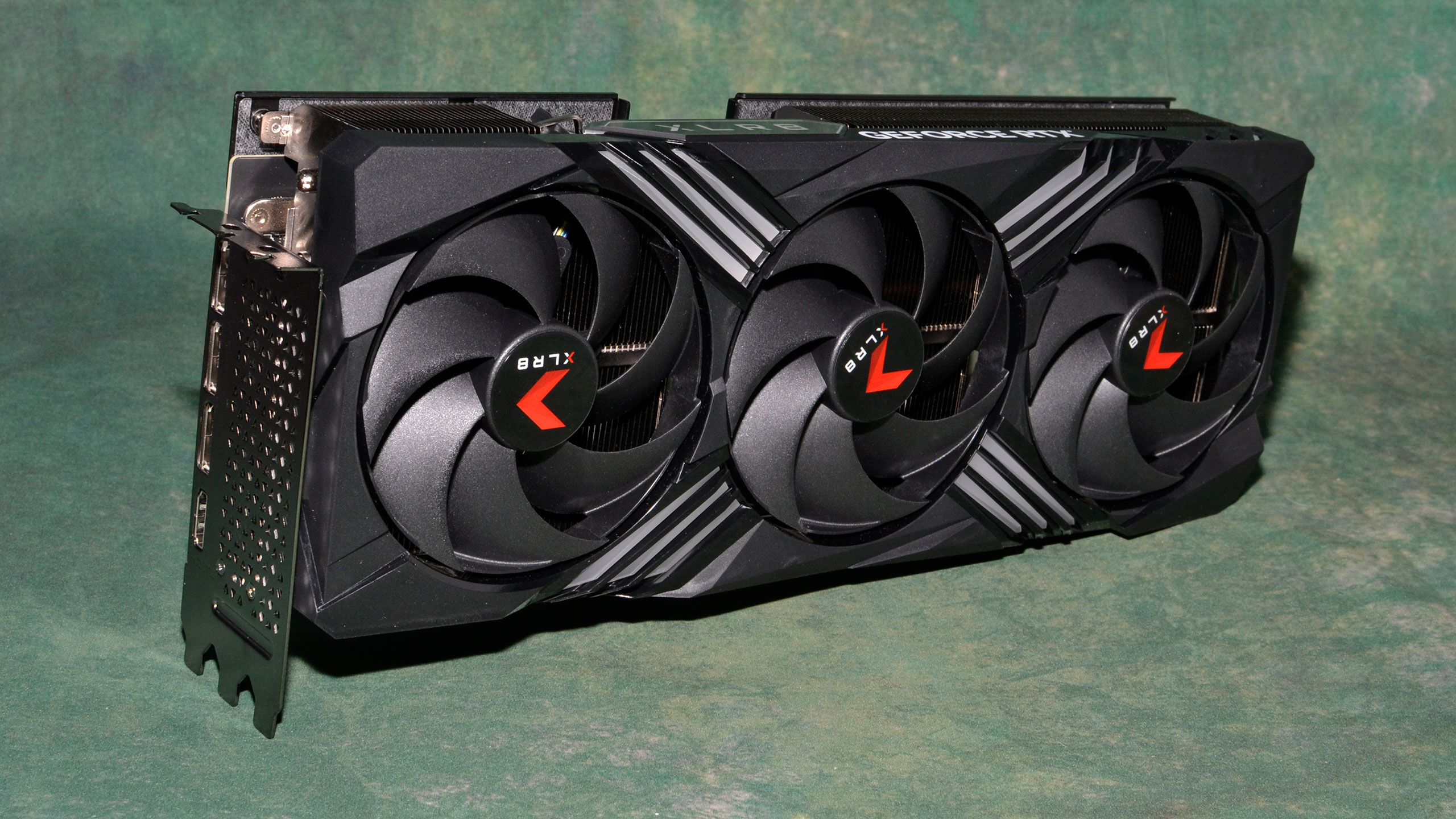Why you can trust Tom's Hardware
4K — particularly with upscaling (from 1440p) — also represents a reasonable target for any graphics card that costs $800 or more. What does the PNY Verto OC provide that the Asus TUF Gaming doesn't? Mostly RGB lighting, but let's look at the 4K performance.
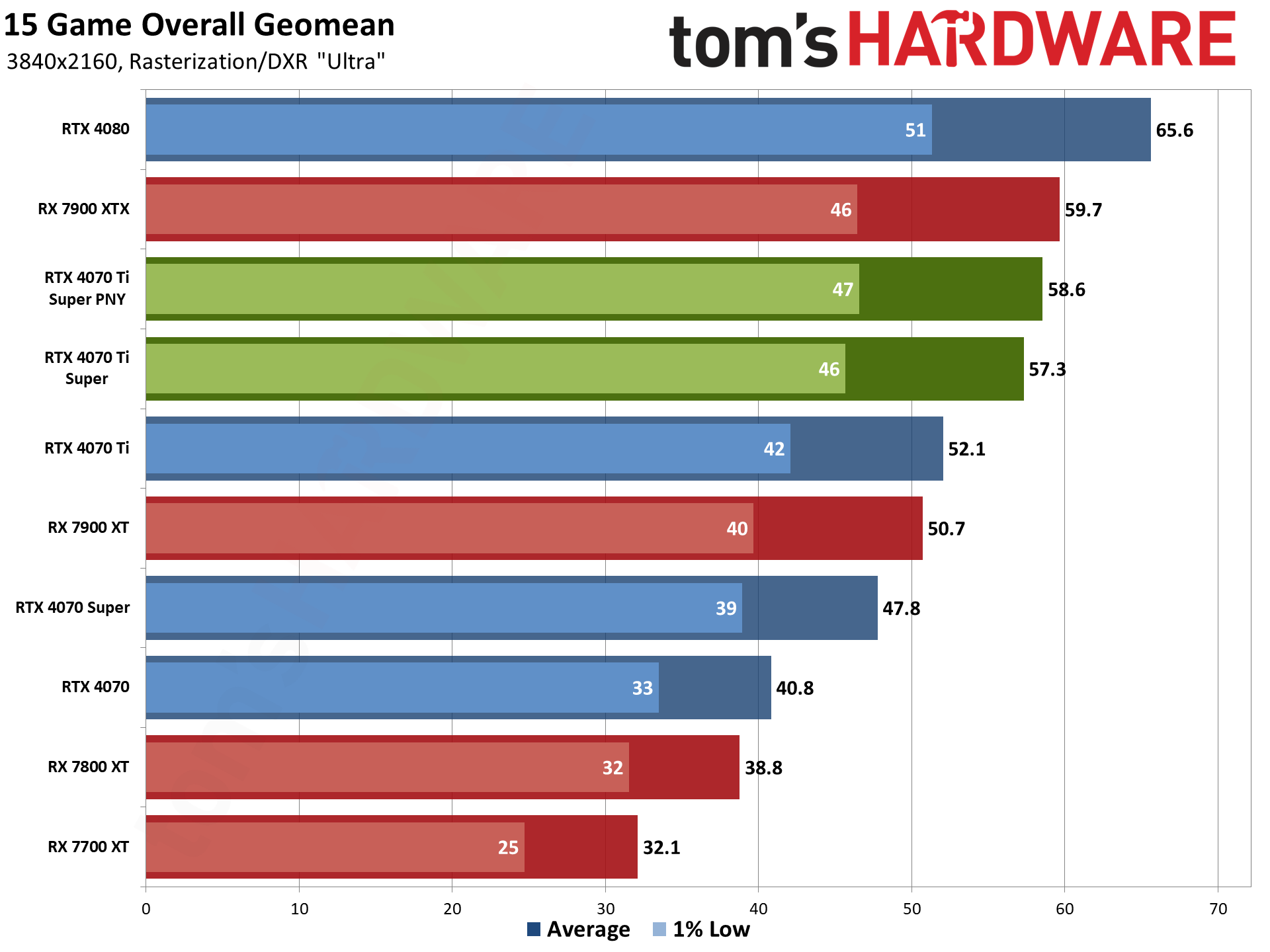
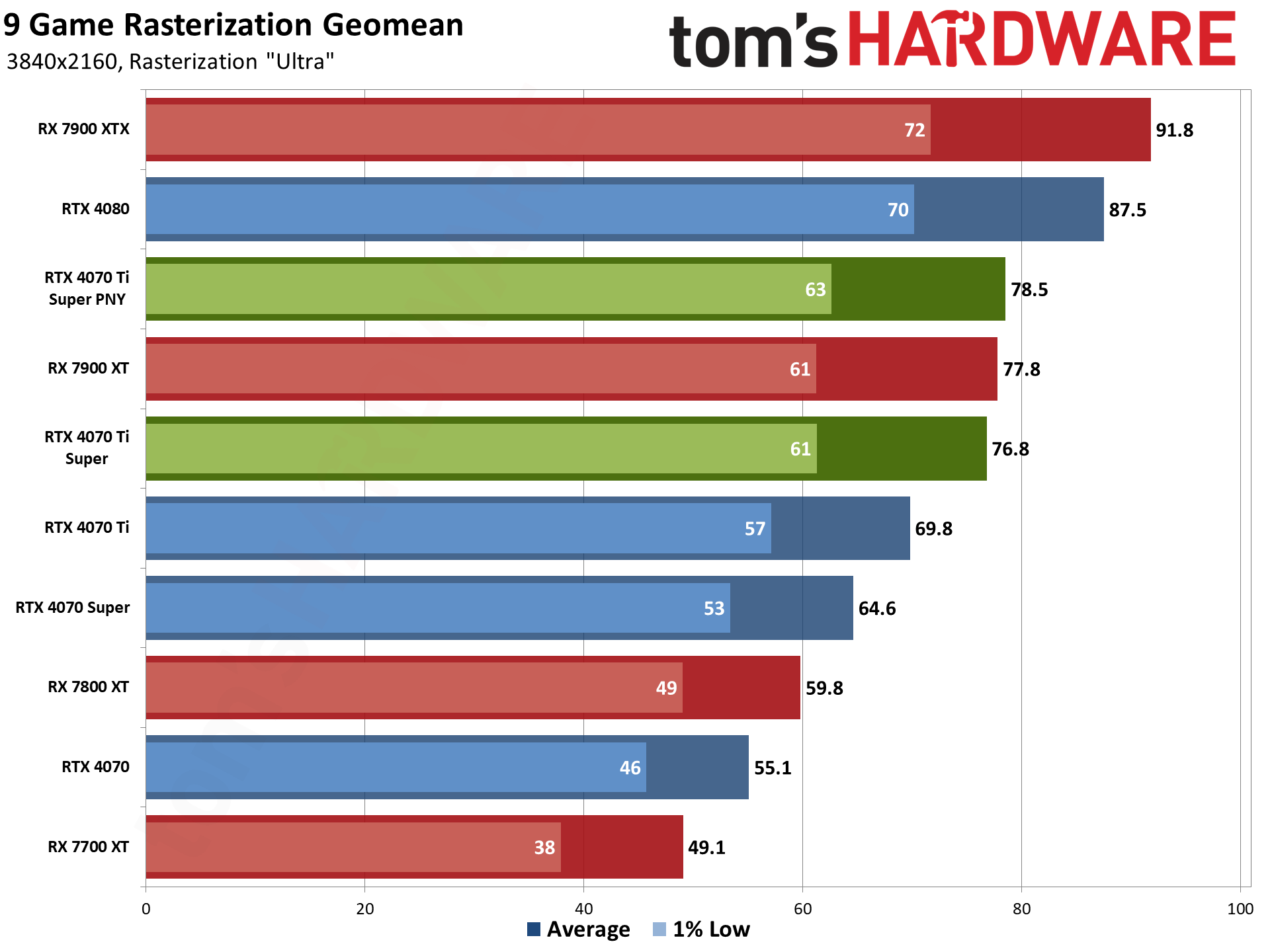
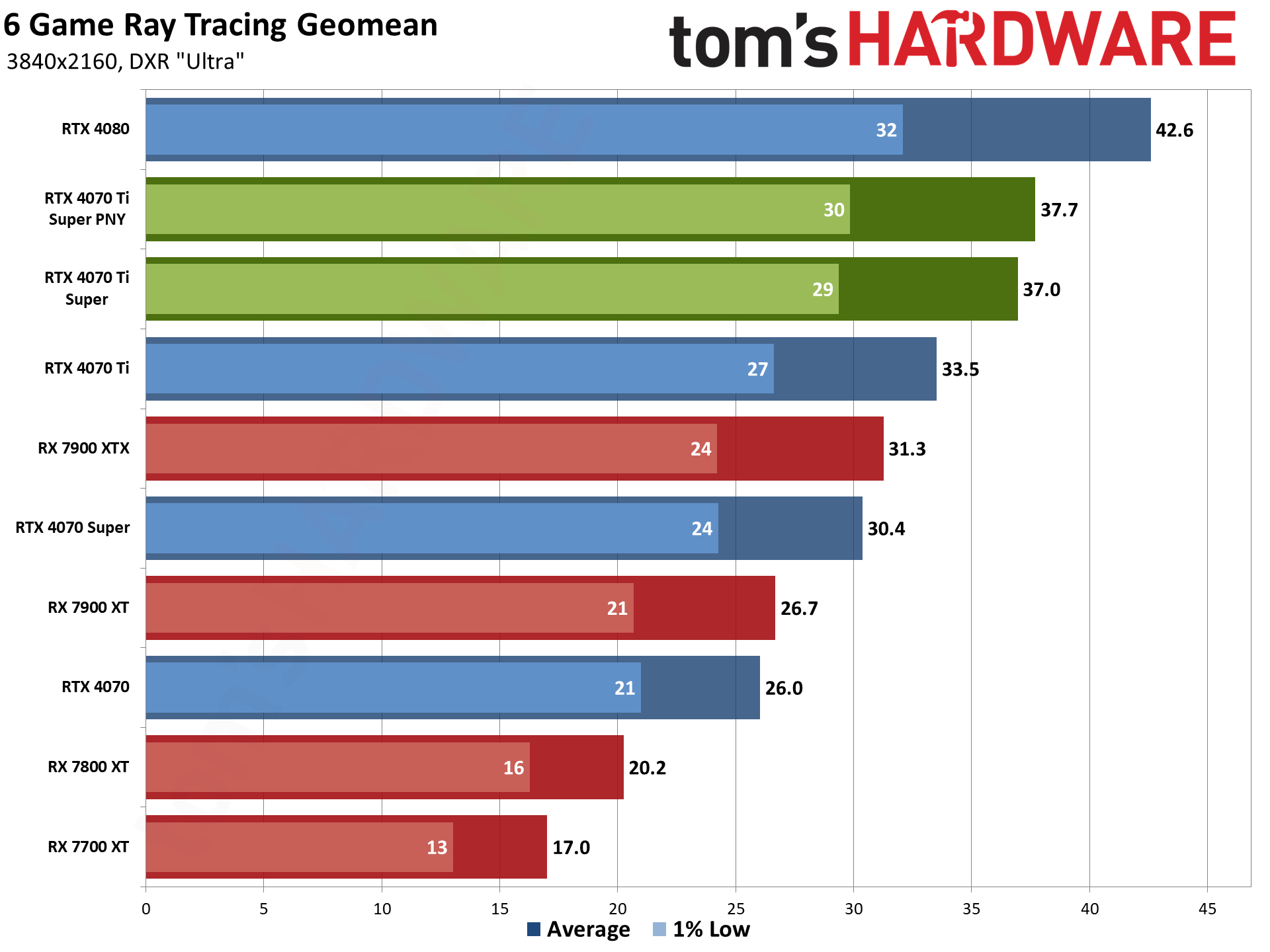
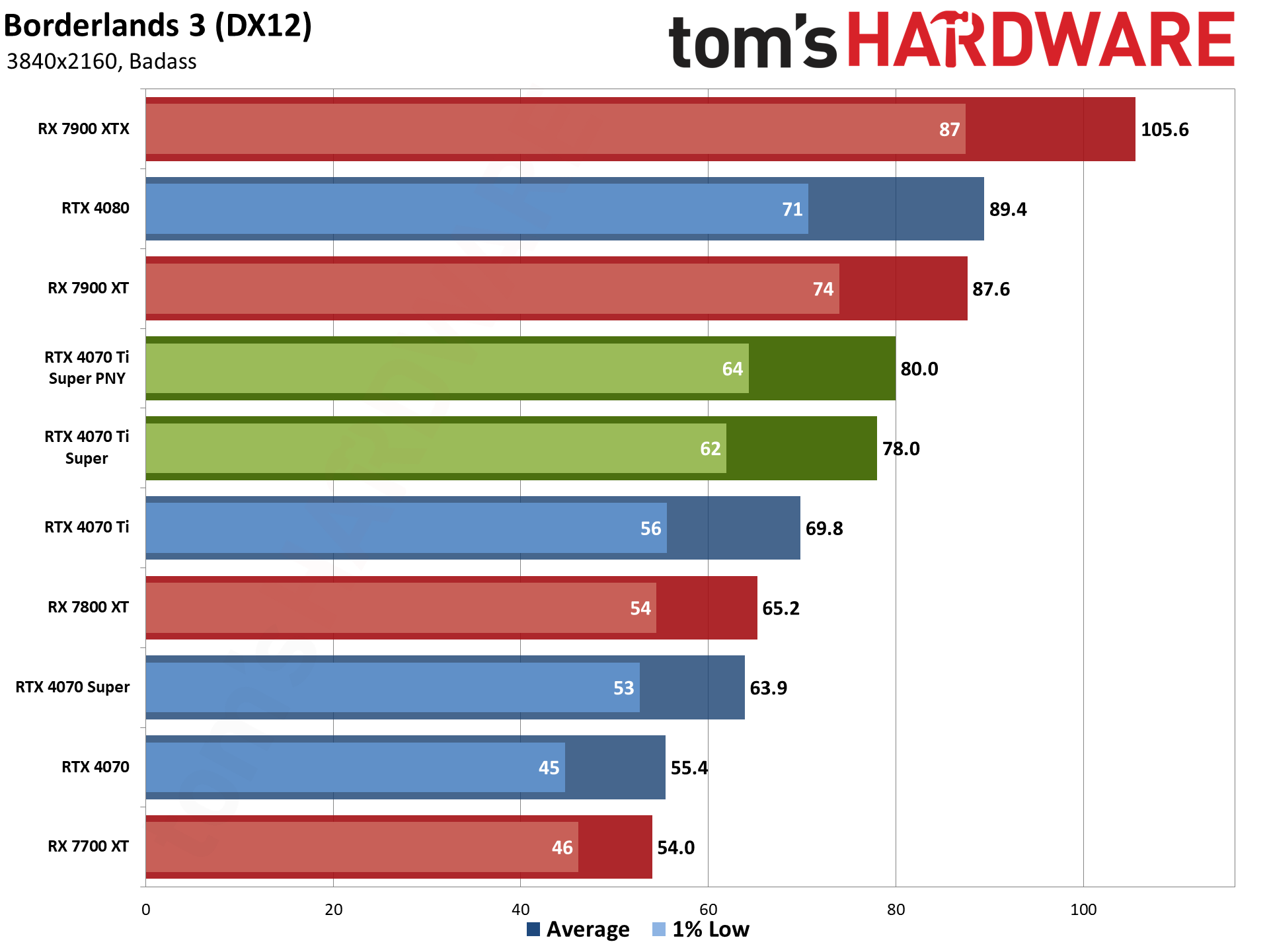
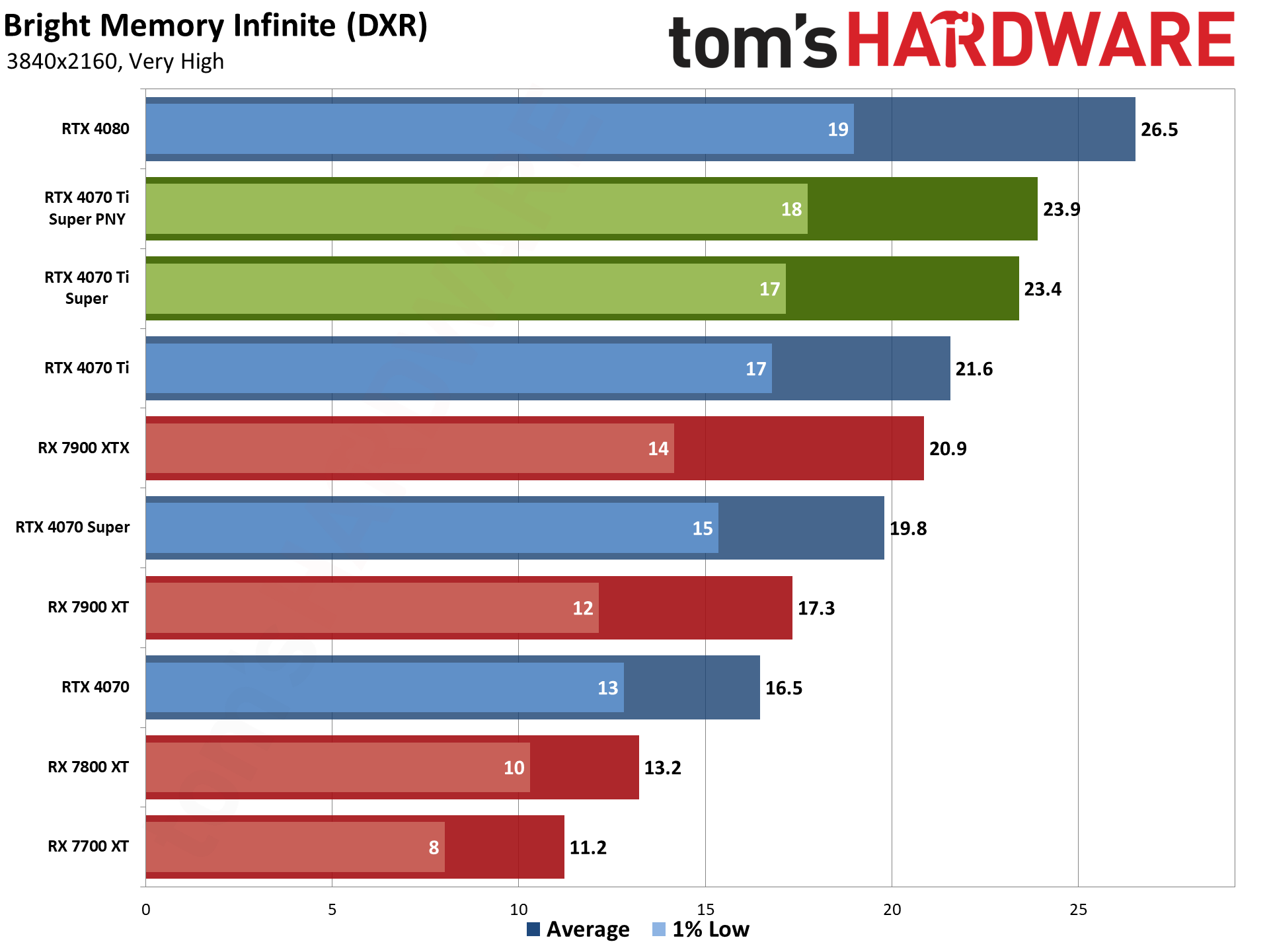
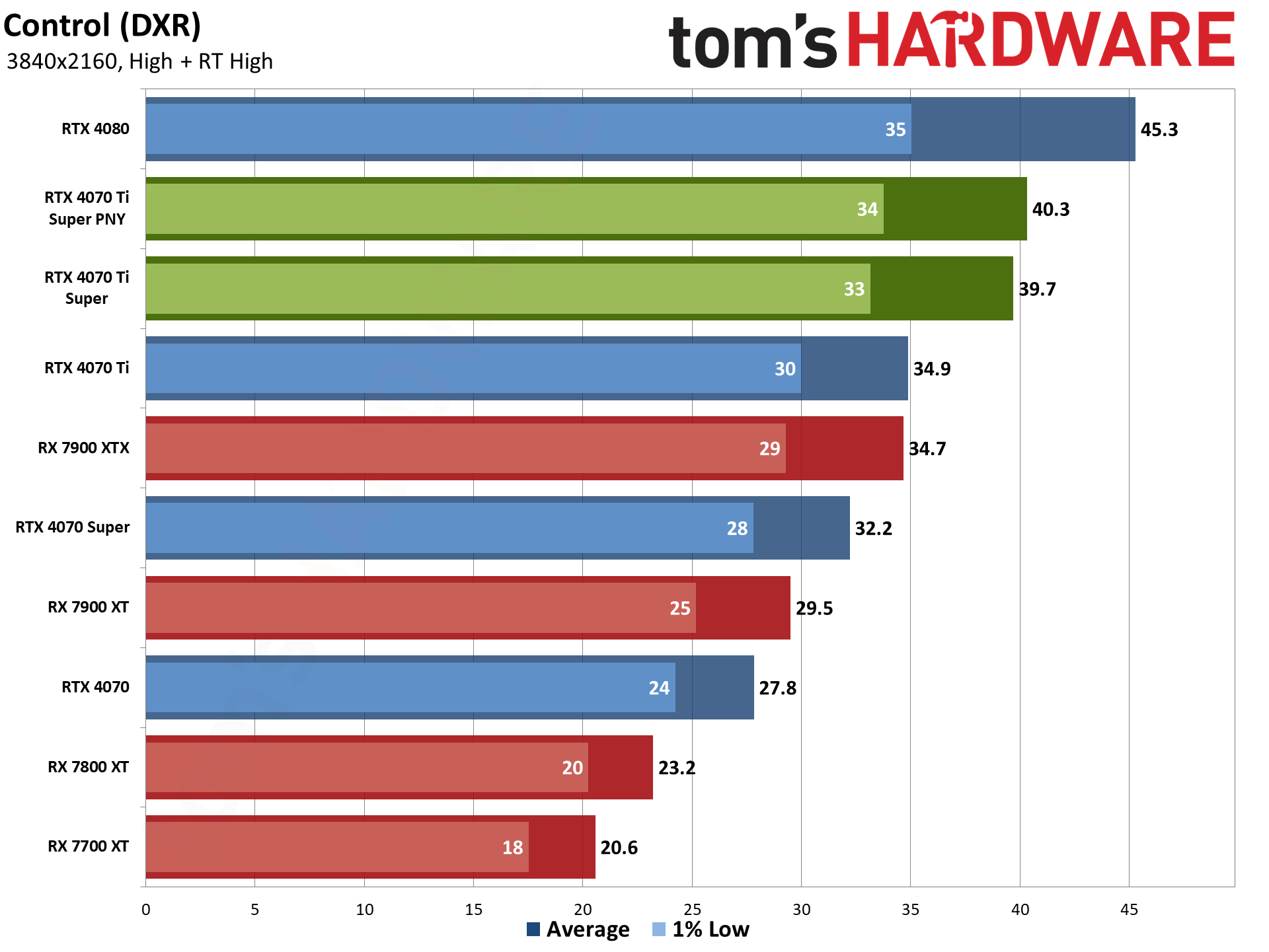
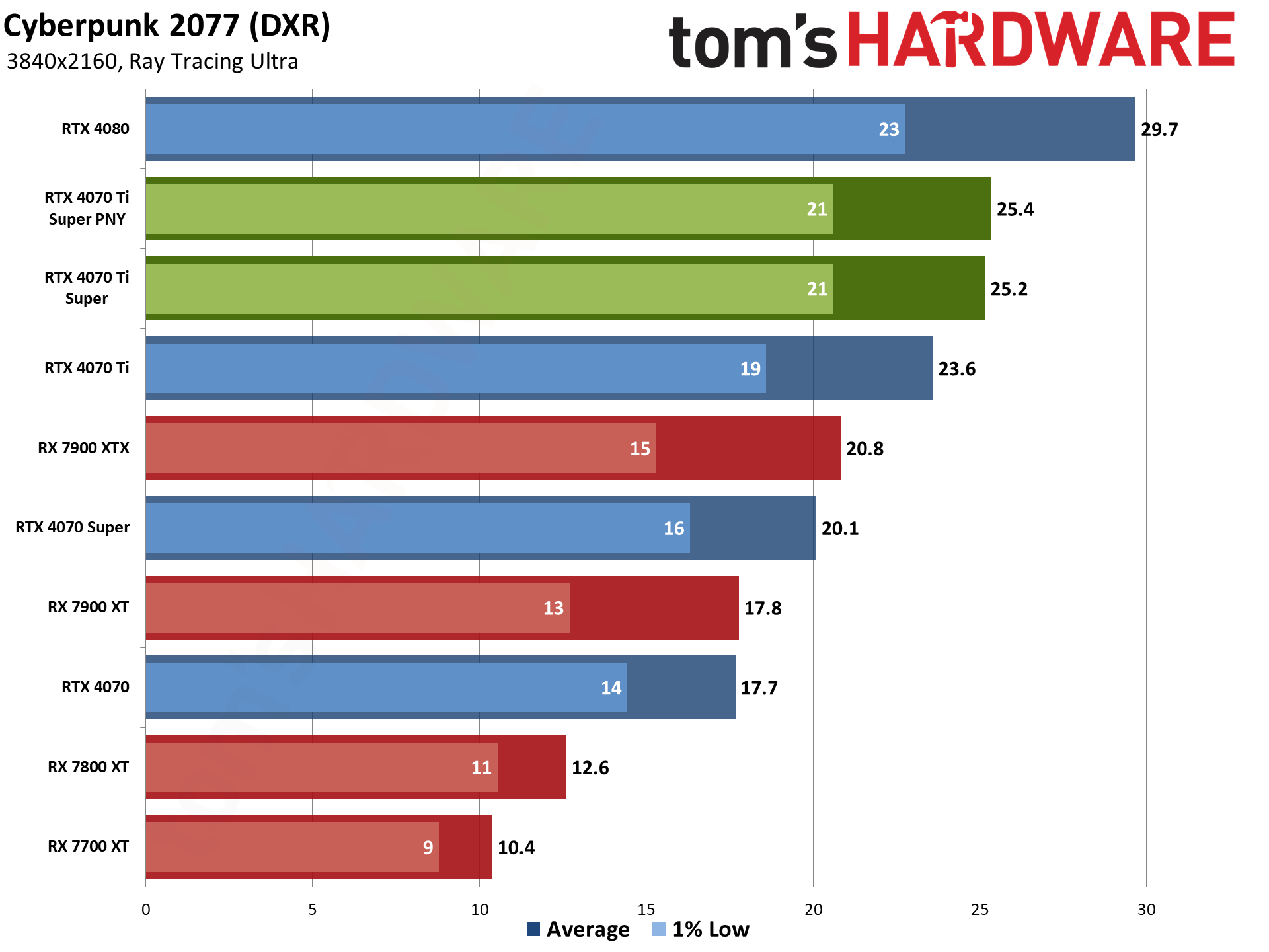
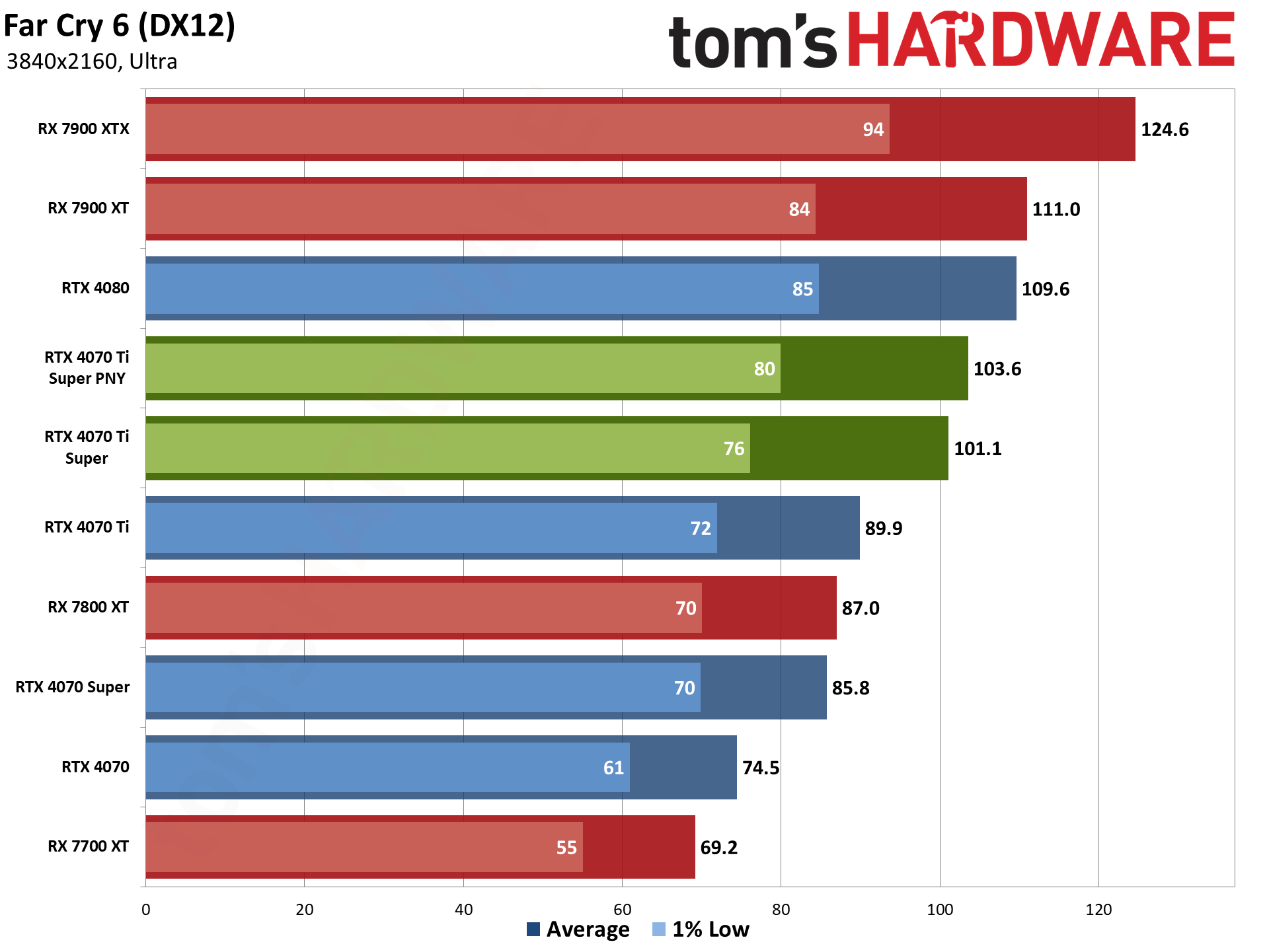
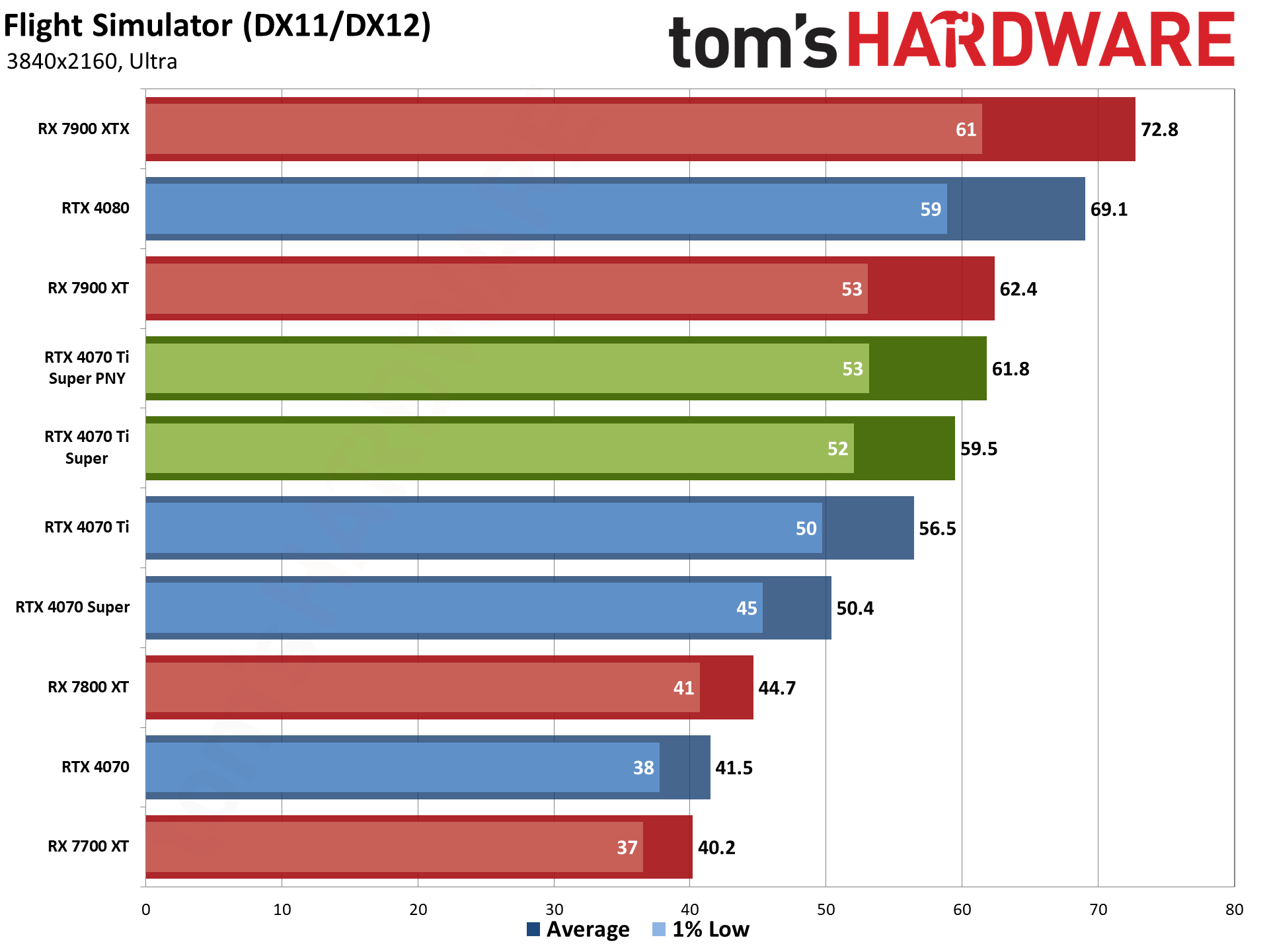
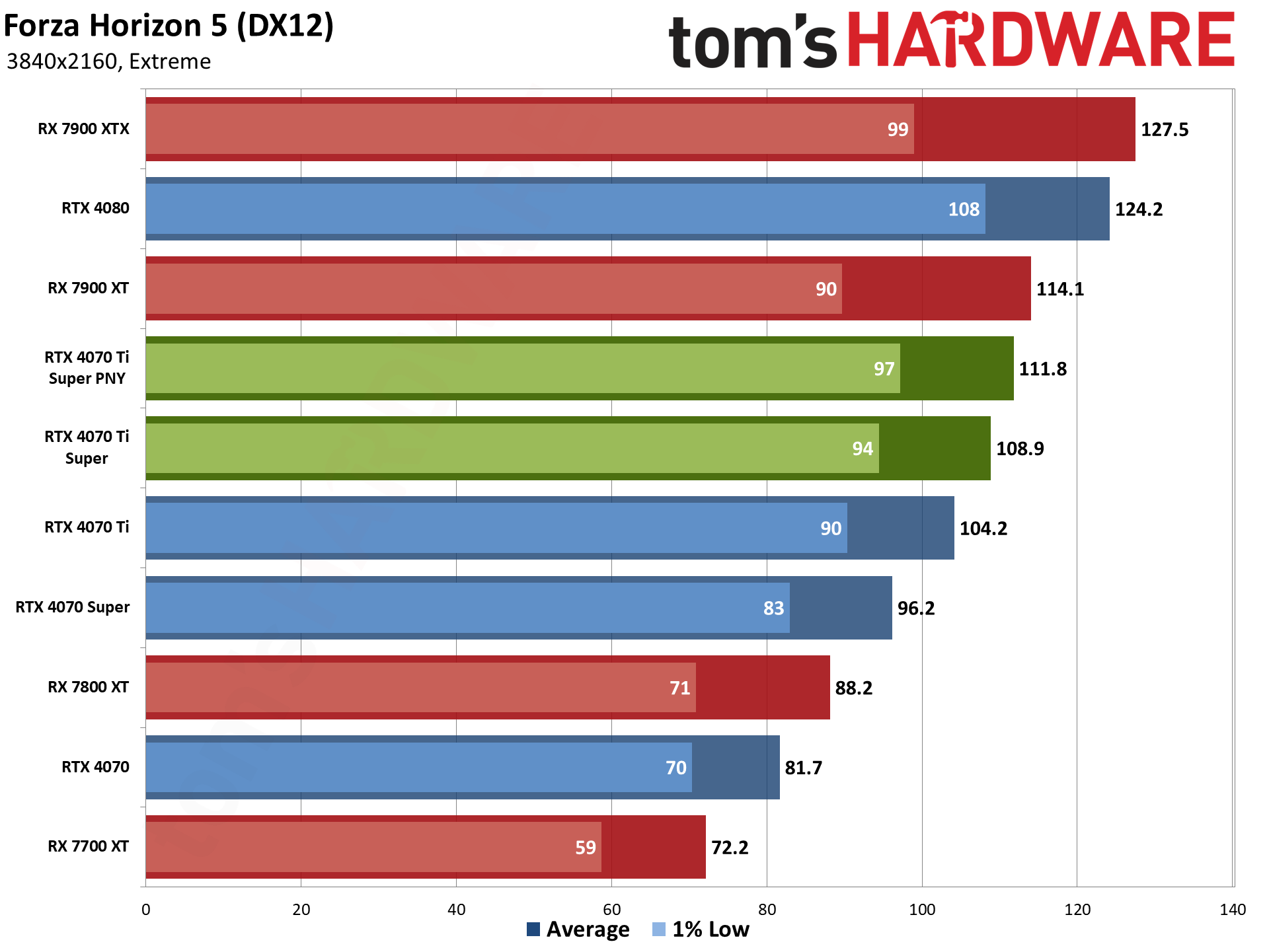
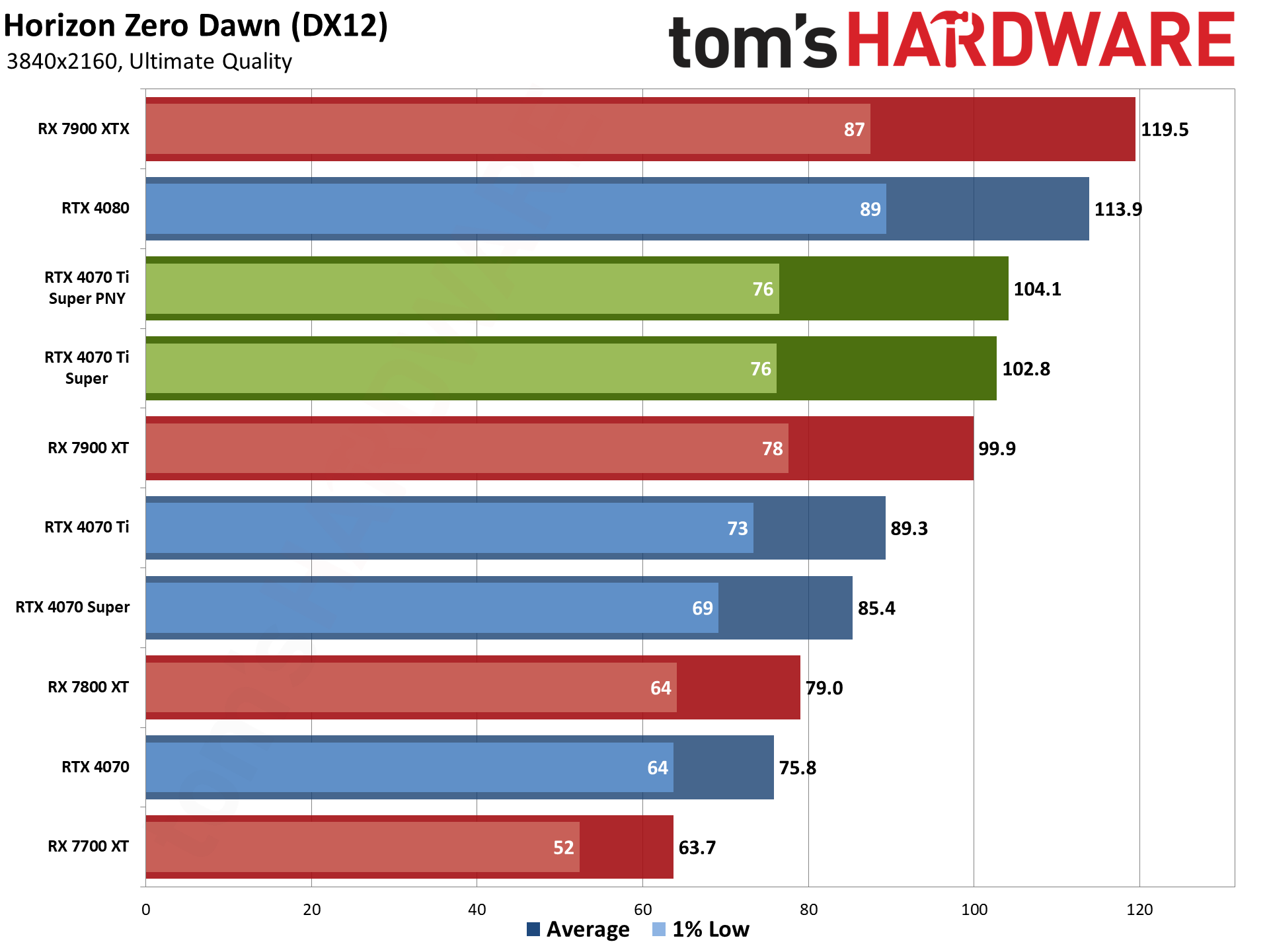
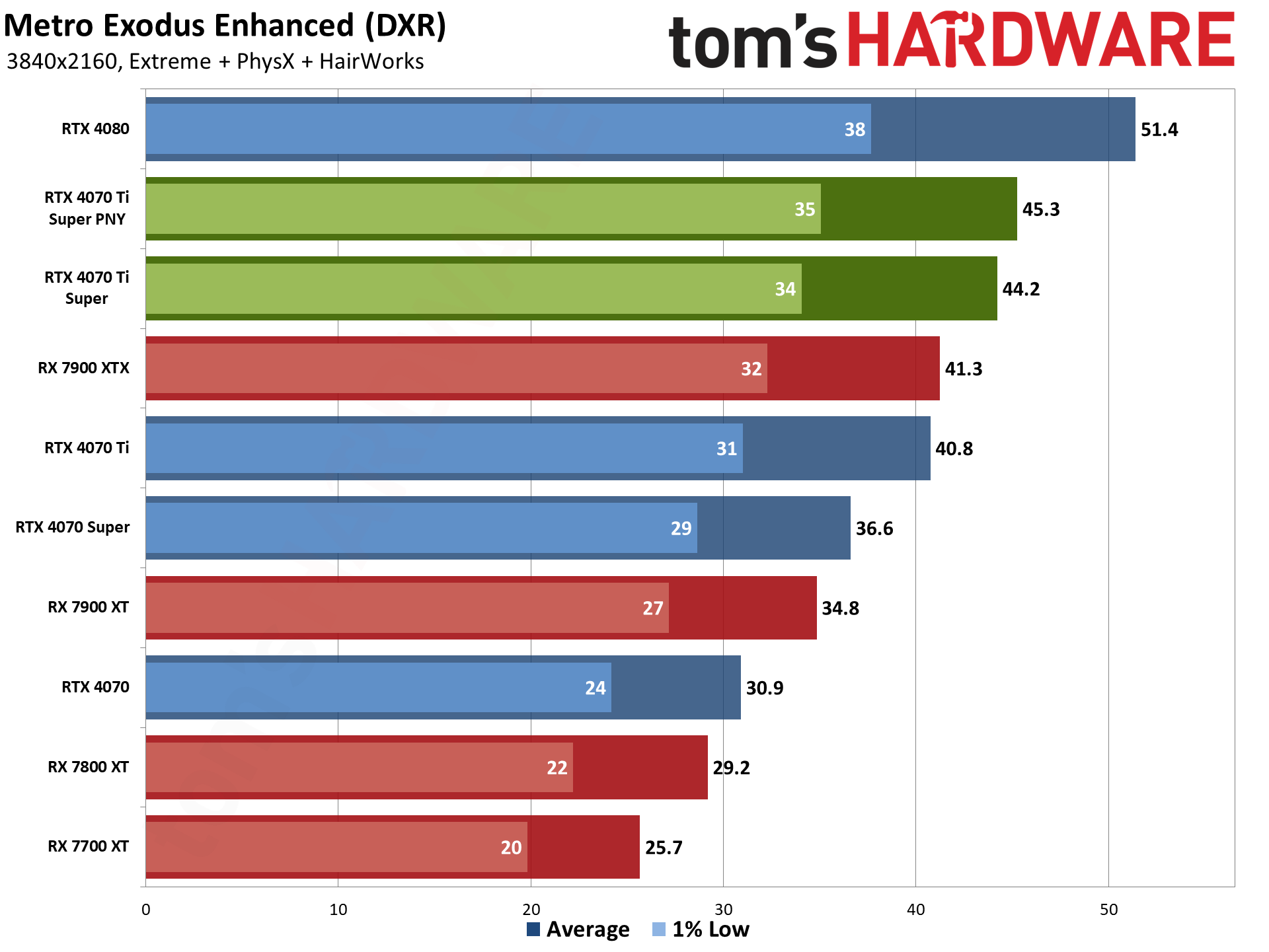
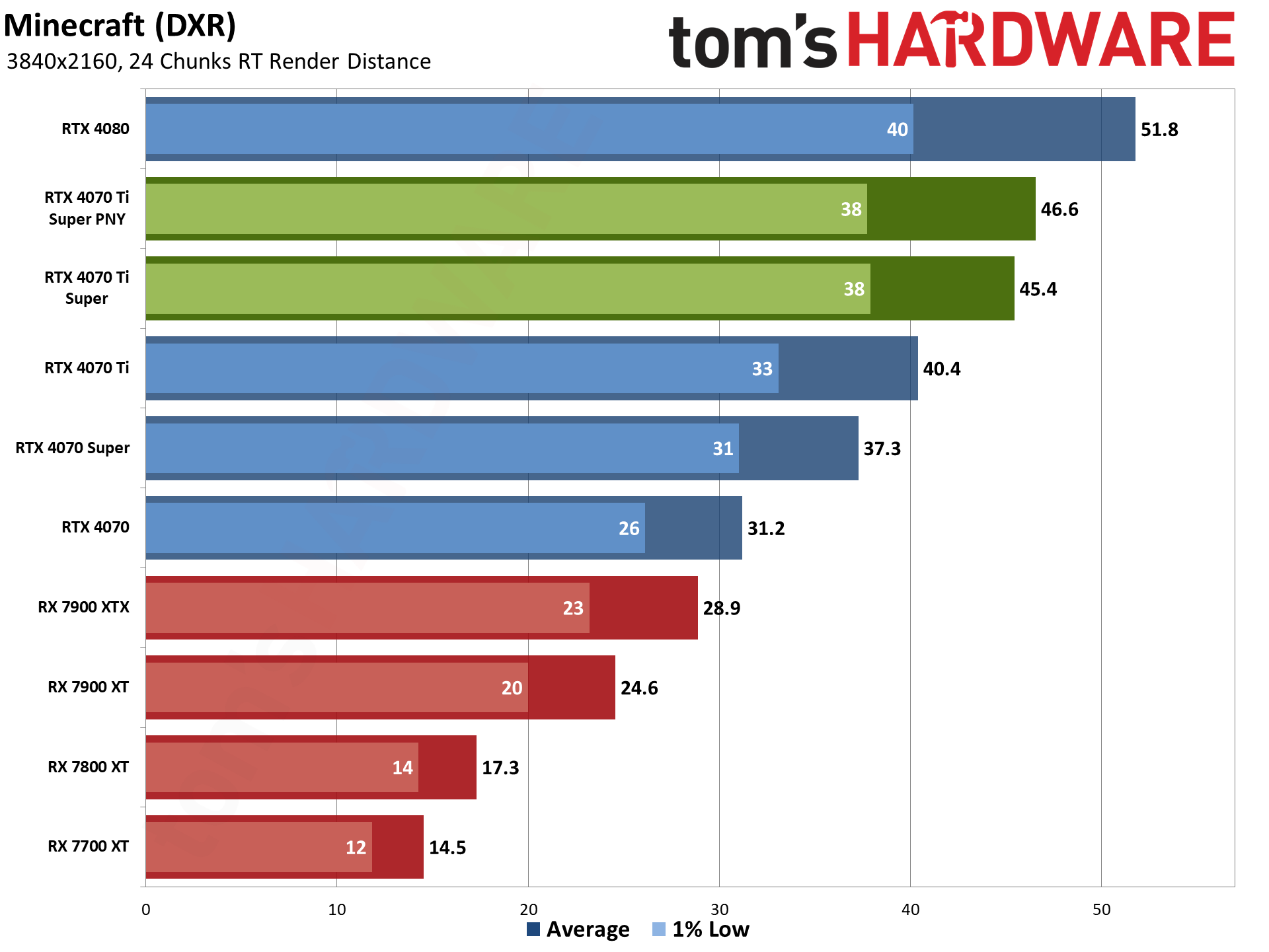
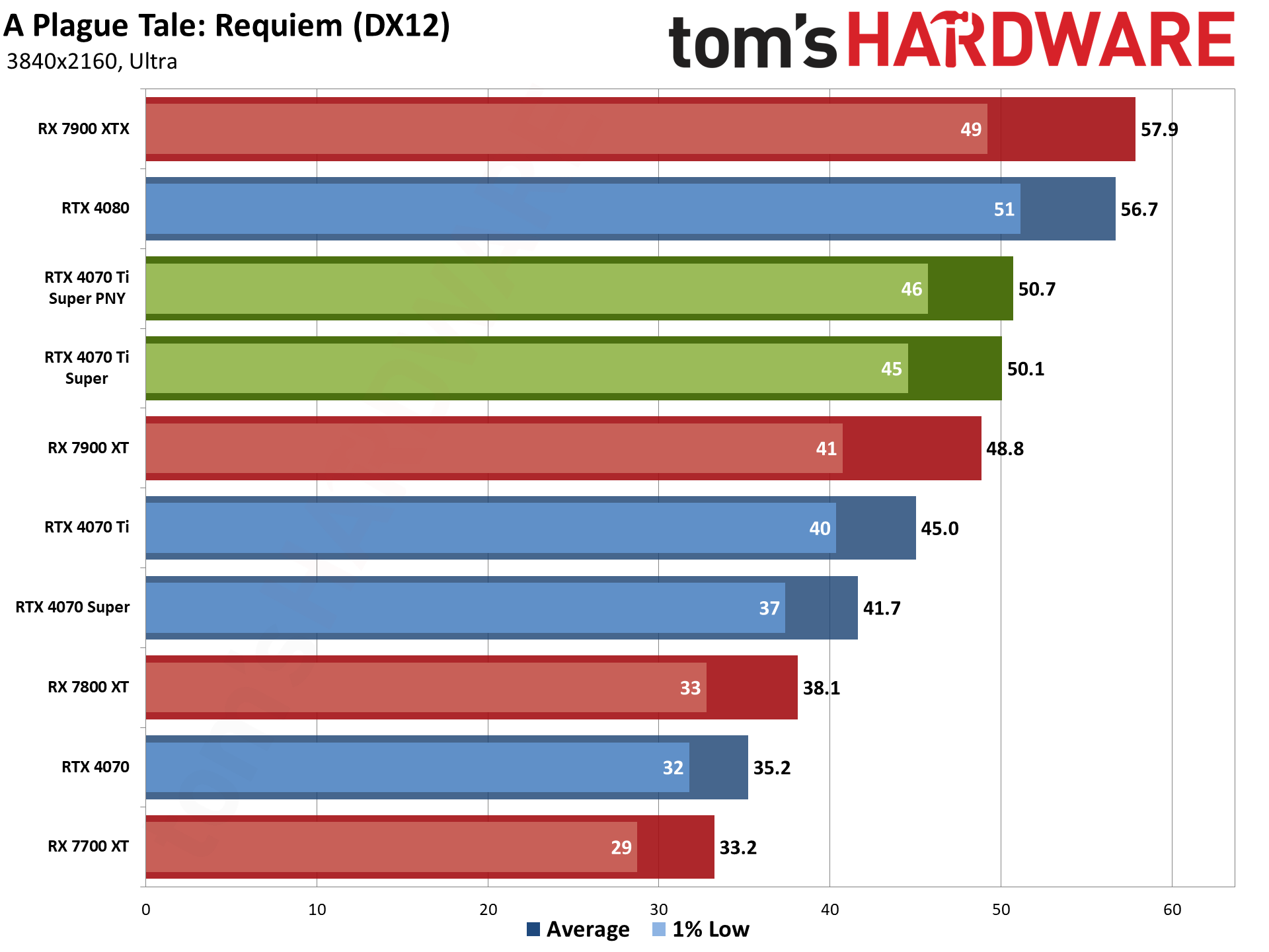
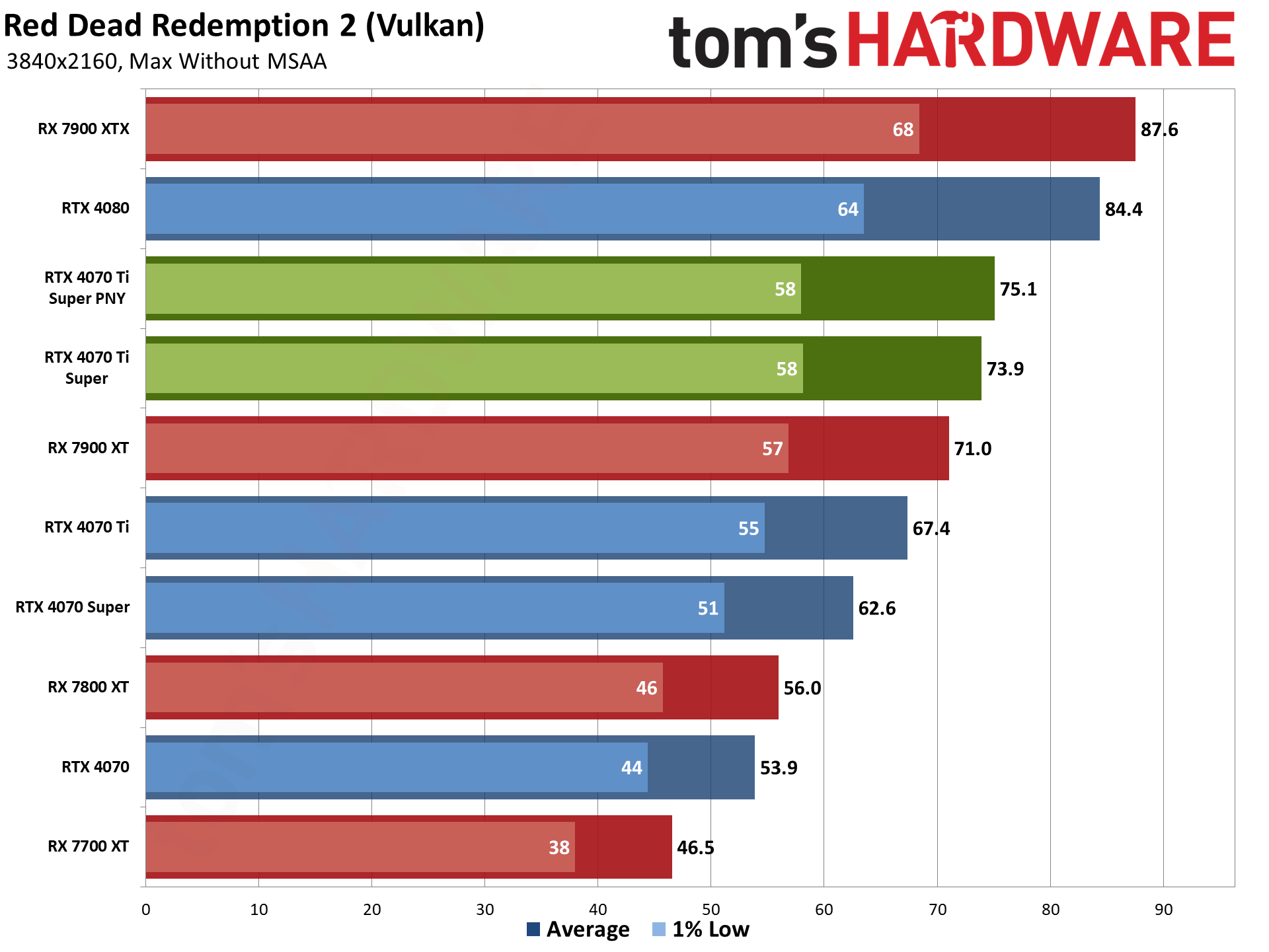
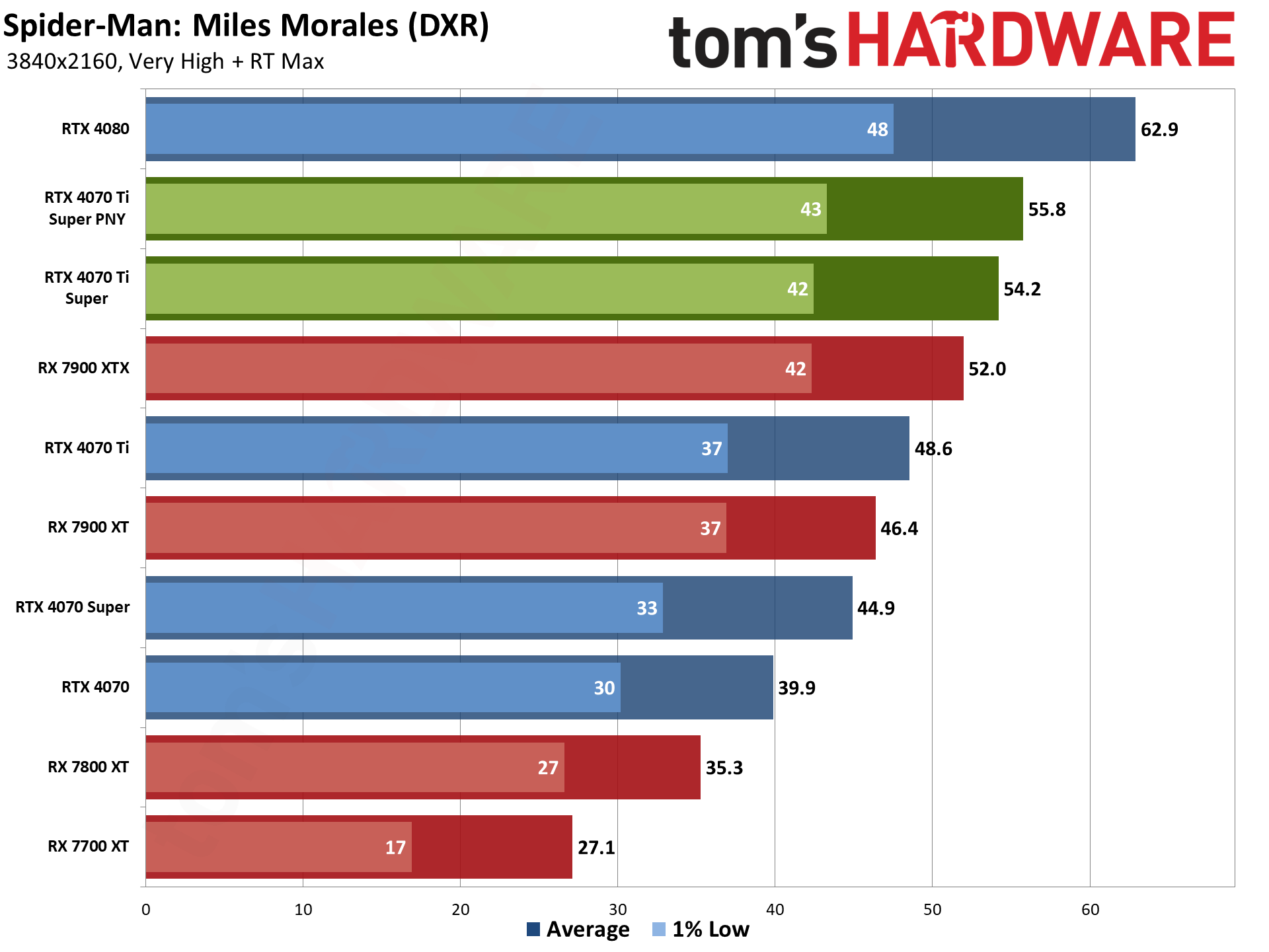
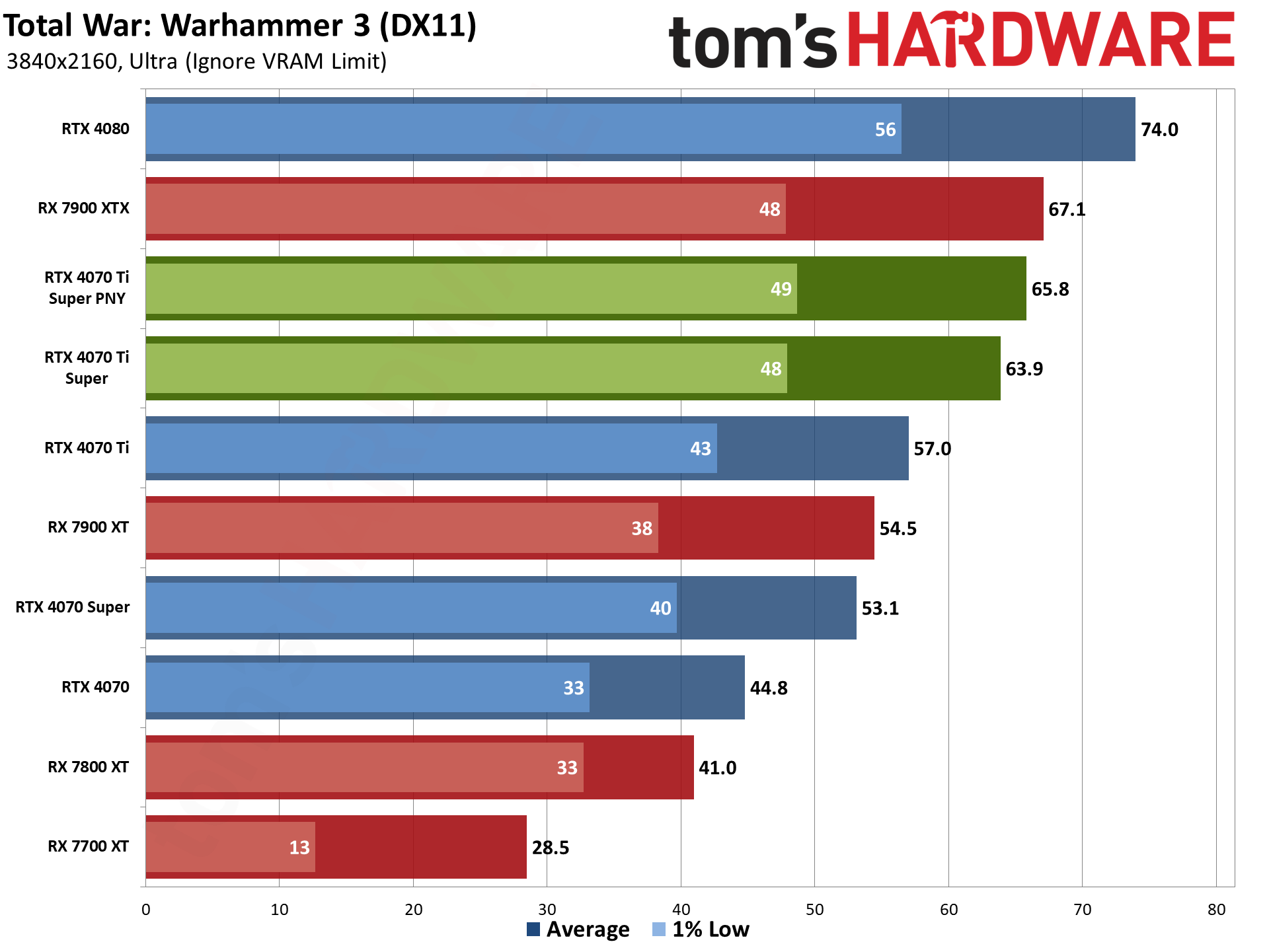
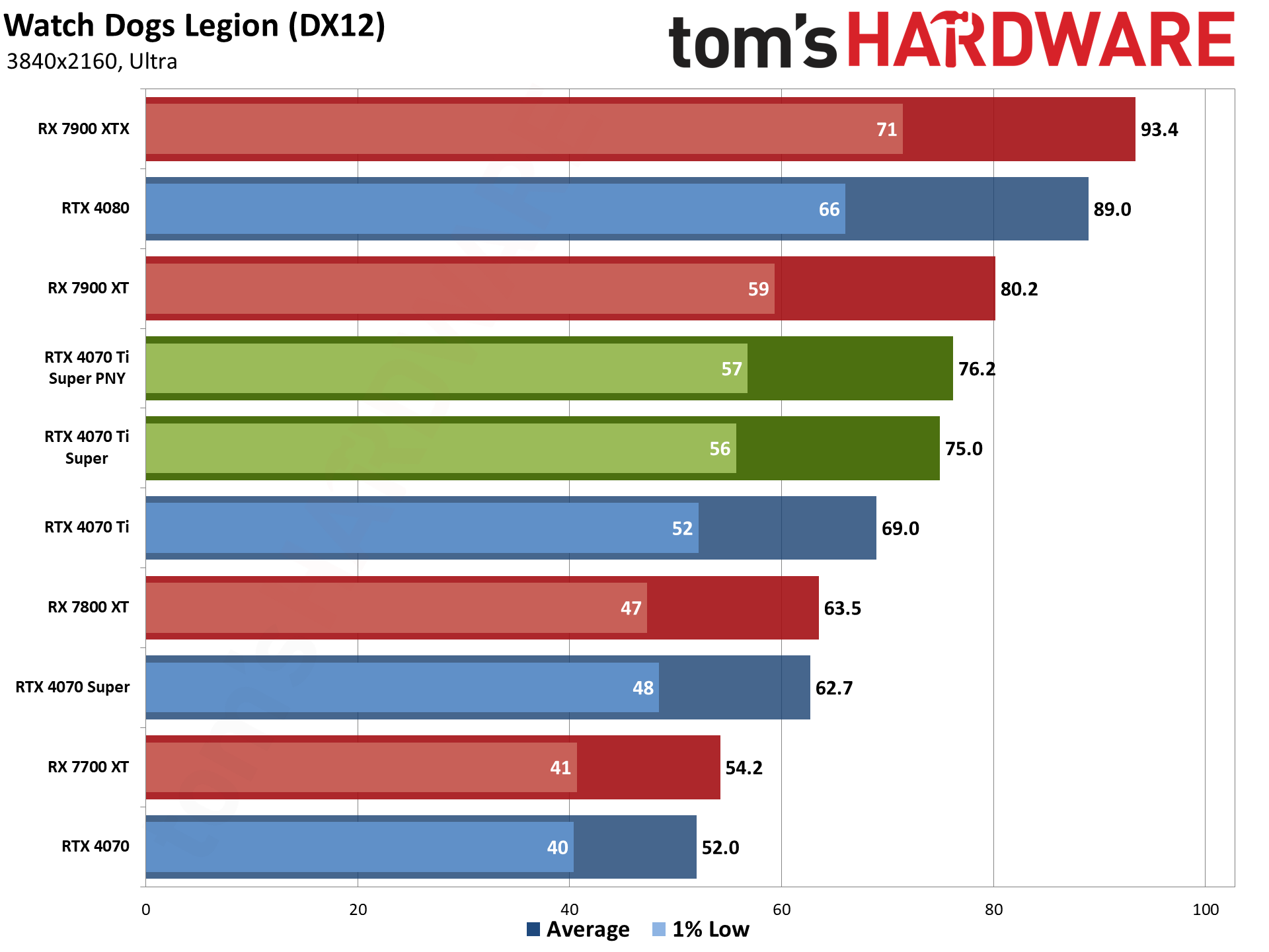
The results pretty much match what we saw at 1440p, with the PNY card leading the Asus card by 2.2% overall. That doesn't change any of the overall rankings, at least not in any meaningful way. The 7900 XTX just edges past the PNY card, with a decently large 16.9% lead in the rasterization suite overcoming the 17.1% deficit in the DXR suite — but there are more rasterization than DXR games, so overall AMD still comes out on top.
Getting back to the two 4070 Ti Super cards, PNY increases its lead just slightly at 4K, ranging from 0.8% to 3.9% faster in the 15 individual games. Curiously, the biggest lead was in Flight Simulator, which is normally more CPU limited. Looking into the details, it seems both cards were at the TGP limit, but the PNY card was running 5C cooler and that allowed it to average 100 MHz higher on its clocks — 4% higher than the Asus card's clocks. We'll get into this more on page five, but cooling certainly looks to be a strong point on the PNY Verto OC.
One thing that's clear from our 4K test suite is that ray tracing at native 4K proves to be too much for the 4070 Ti Super. Games that aren't quite as demanding, like Spider-Man, can get close to 60 fps, but Bright Memory Infinite (Benchmark) and Cyberpunk 2077 would need upscaling and possibly frame generation to crack 60 fps. The standalone benchmark for BMI doesn't have DLSS 3 support, but the main game does, if you're wondering — and the main game is far less taxing than the impressive looking tech demo.
- MORE: Best Graphics Cards
- MORE: GPU Benchmarks and Hierarchy
- MORE: All Graphics Content
Get Tom's Hardware's best news and in-depth reviews, straight to your inbox.
Current page: PNY RTX 4070 Ti Super Verto OC: 4K Gaming Performance
Prev Page PNY RTX 4070 Ti Super Verto OC: 1440p Gaming Performance Next Page PNY RTX 4070 Ti Super Verto OC: 1080p Gaming Performance
Jarred Walton is a senior editor at Tom's Hardware focusing on everything GPU. He has been working as a tech journalist since 2004, writing for AnandTech, Maximum PC, and PC Gamer. From the first S3 Virge '3D decelerators' to today's GPUs, Jarred keeps up with all the latest graphics trends and is the one to ask about game performance.
-
Amdlova Two days to say the name of graphics.Reply
Because the name will sell like hot cakes.
Like the time when you have a simple model...
Now you have tier 1 2 3 4 5 lol -
Notton So it's US$50 extra for an average of 1-2 fps increase.Reply
And, okay, it runs about 8-10C cooler... on a card that already runs at a very cool 60-62C
Just why would anyone buy this? -
JarredWaltonGPU Reply
Da bling, man! How can you forget the bling? :ROFLMAO:Notton said:So it's US$50 extra for an average of 1-2 fps increase.
And, okay, it runs about 8-10C cooler... on a card that already runs at a very cool 60-62C
Just why would anyone buy this?
It's not just lower temps, but also slightly lower noise. So, noise, temps, and RGB are why anyone would buy this. Are those good enough reasons? Probably not for a lot of people, but I'm sure a few will bite. -
randomnorthern Reply
Too have a cool card that can run very quiet obviously. Mine runs under 50C under full load with only 120-160 watts. And it literally was the cheapest card here of them all.Notton said:So it's US$50 extra for an average of 1-2 fps increase.
And, okay, it runs about 8-10C cooler... on a card that already runs at a very cool 60-62C
Just why would anyone buy this?
